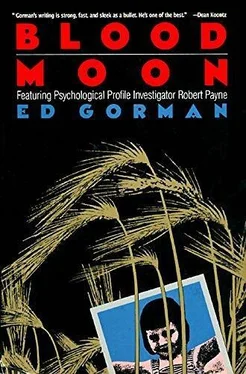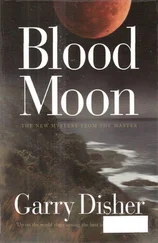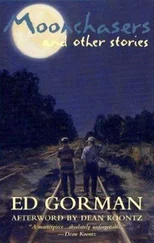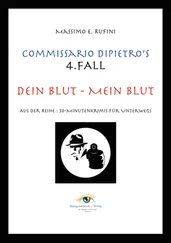“Why don’t I have Eve call you when she’s feeling a little better?”
“I’d appreciate that. Today if possible.”
“I’m just going to get her a few things. Then I’ll be back and tell her.”
“I appreciate that. I really do.”
He was gone, then, and I walked back downtown. The husband was missing, and the daughter hadn’t been to school in nearly a week, and Eve McNally was given to sudden fits of sobbing.
I wondered what the hell was going on here.
Lunch, a couple hours later, after a morning spent sitting in the tiny red-brick library and looking through newspapers to acquaint myself with the town, was a Big Mac and fries eaten at a bright orange table in a bright orange seat overlooked by a poster of Ronald McDonald, who looked curiously sinister. Ever since John Wayne Gacy — who murdered, that we know of, thirty-six young boys, often while wearing a clown costume — clowns sort of spook me.
The main drag told an interesting story. If I’d sat at this window a few years ago, I’d have seen brand-new cars and brand-new pickup trucks parading down the street past the two- and three-story buildings.
But no longer.
In the 1980s the rural economy, like the urban economy, suffered a setback from which it had never recovered. People talk about the urban underclass, those ragged, bleak denizens of rattling, rusted-out hulks that emit clouds of black smoke and that idle as if they’re in death spasms — well, there’s a rural equivalent, and I saw a lot of them on the street today, coming into town for more food stamps or a visit to the free clinic on the east edge of town or to apply for a minimum-wage job at one of the fast-food places. Andy of Mayberry had done moved away.
I was just finishing my Pepsi, just starting to want a cigarette the way I still do after each meal, when I looked up and saw a tall red-headed woman with cat-green eyes and a cute dinky nose and enough freckles for three people standing there watching me.
“Are you Mr. Hokanson?”
I was out of practice and so the question caught me off guard, but at least I was smart enough to respond. “Yes.”
“Mind if I join you?”
“Not at all.”
She had a kid-sister grin touched with a certain disingenuous eroticism. “Even brought my own coffee. I’m a real cheap date.”
She sat down on the other side of the small orange table. It wasn’t easy. Slim as she was, her big leather rig — holster and gun and nightstick — took up room in quarters this cramped.
“I should introduce myself, I guess. I’m Jane Avery. I’m the chief of police.” The grin again. “I know that sounds impressive, but just keep in mind that it’s a very small police department.”
“I’m impressed anyway.”
This time it was just a smile. She sipped her coffee, looked over and waved at somebody who waved and called her name. At noon, the customers ran to downtown workers, people who looked retired, and truckers. The back lot held maybe ten sixteen-wheelers.
“I forgot to tell you, Mr. Hokanson, I’m also a celebrity.” She sipped coffee. “Boy, that’s hot.”
Her name was called again, this time by a guy who had to be a banker. He looked born to it.
She waved.
“They seem to like you,” I said.
She shook her head, her short red hair baby-soft and baby-fine. She wasn’t exactly beautiful, she wasn’t even exactly pretty, but she sure was fetching. “Guilt.”
“Guilt? Over what?”
“The way they treated me when I first came here. Three years ago.”
“They weren’t nice?”
“Not nice is an understatement. The mayor, a man named Glickson — he’s dead now, by the way — saw a piece about me in a Des Moines newspaper, how I was a young cop who was getting her master’s in criminology at night school. His police chief had just quit, and so he offered me the job. It was good timing. My husband had just asked me for a divorce. He’d never been happy about me being a cop, he found it a very unfeminine job, and he couldn’t help himself, and gee whiz — he was sorry, but he’d fallen in love with a woman at the ad agency and gosh, wouldn’t I just give him a divorce so we could all be happy? So I took the job here.” She laughed softly. “At least it distracted me from my broken heart, though God knows why I was brokenhearted about Ron. Anyway, among many other misdemeanors, some of the old-boy network in town here pinned a Kotex on the antenna of my police car, and called me at all hours of night and day with all kinds of sexual suggestions, and tried three different times to have the mayor fire me. I think he had a heart attack and died because of all the stress. Then the young professionals in town finally got sick of hearing about it and took my side, and that put everything into a kind of stalemate. So here I am.” The grin again. “Boring story, huh?”
“Hardly. I’m just amazed you’re still here. With that kind of harassment, most people would have left.”
She shrugged the shoulders of her stiff police shirt. “I was an orphan. This job had a lot to do with my identity and self-worth, if you’ll excuse the jargon. It was very important for me not to run.”
“I can understand that.” I looked at her carefully. “In fact, there’s only one thing I don’t understand.”
“And what’s that?”
“Why you came over here and sat down.”
“Oh, that’s simple enough. A citizen asked me to investigate you.”
“Would this citizen’s name be Eve McNally?”
“Could be.” She leaned forward into an angle of sunlight. Her eyes were vivid green. “Do you have some ID?”
“Are you serious?”
She nodded. “Afraid I am.”
“My name’s Jim Hokanson. I’m a free-lance writer. Sometimes I do retainer work for Fenroe Publishing.”
I dug out my billfold, extracted a white business card, handed it to her.
She didn’t look at it, just left it lying next to her elbow.
“Anybody can get a card printed. I really need to see some ID.”
To the casual eye, we might have been lovers having a quick lunch at McDonald’s. She looked so sweet and relaxed sitting across from me.
I got out all the Hokanson stuff and handed it over: license, medical-insurance card, Visa card.
She went through it carefully, turning everything over and over in her slender fingers, even bending the Visa card a little.
She handed it back.
“So tell me,” she said, “who are you?”
“You saw for yourself.”
“None of that’s ever been used.”
“What?”
“All brand-new. Your Visa card, for instance. Use that a few times in one of those machines, it gets scratched a little. But it isn’t scratched at all. Same with your license. Not a mark on it. So who are you?”
“You must’ve read an awful lot of Nancy Drew when you were growing up.”
She smiled. “I did as a matter of fact. But you’re not answering my question.”
“Who am I, you mean? That’s a pretty heavy philosophical question for this time of day.” I looked across the small-town street where people stood in twos and threes beneath the shadows of awnings and discussed small-town news and gossip. There was a pizza place named “Mike’s” on the corner. “Does Mike make good pizza?”
“Who?”
“Mike. Across the street.”
“Oh. Yes. Pretty good. So who are you, Mr. Hokanson?”
I smiled. “I’m on the same side you are, let’s put it that way.”
“That’s a very elusive answer.”
“That’s because I’m a very elusive guy.”
Her beeper went off. She frowned. “Excuse me.” She walked back to a pay phone, deposited some coins and talked for a minute or so. She came back, but this time she didn’t sit down. “Bad car accident. I have to leave. I may see you later, whoever you are.” I waggled the Visa card at her. “Says right there that I’m Mr. Hokanson.”
Читать дальше









